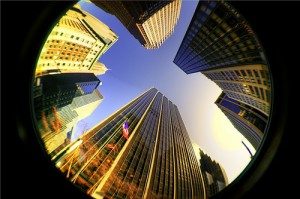Experiencing The Post-9/11 New York City
 I moved to New York City the summer after 9/11, though I was actually born in Brooklyn, but raised in Miami, so it was a return of sorts. The city was still visibly stunned and the country was astir with its color-coded thing. “Ground Zero” had stopped smoldering months ago, but the clean-up was well under way. Thousands had died, which meant that hundreds of thousands were being directly affected, which then affected the millions grinding it out in the city.
I moved to New York City the summer after 9/11, though I was actually born in Brooklyn, but raised in Miami, so it was a return of sorts. The city was still visibly stunned and the country was astir with its color-coded thing. “Ground Zero” had stopped smoldering months ago, but the clean-up was well under way. Thousands had died, which meant that hundreds of thousands were being directly affected, which then affected the millions grinding it out in the city.
A deep sense of distrust, especially towards Arabs and East Asians, descended on the city like some medieval plague. The summer after 9/11 jobs became scarce as state and federal monies were put on hold so that our “response” might become apparent (nation building price tag and all). The Department of Ed and City University of New York had freezes; this or that association was only hiring internally. The summer after 9/11, New York City still reeled from the pelagic psychic pain and ultra-deep remorse inflicted by those two planes.
The summer after 9/11, the subways were thronged with anti-terror police in body armor, scaring the crap out of everybody. Of course, though, it was for your safety, so unless you were heading up your own cell you shut your mouth and shared the platform with the swat squadron.
We were told numerous times a day that it was the new price of freedom. According to the Daily News, by 2008, the NYPD was already “reinventing itself as an intelligence and homeland security agency” as well as “the nations’ largest police department.” As the country’s hawks played with smoke and mirrors at the United Nations to obtain legitimacy for their eventual invasion of Iraq, New York City became one of the safest and best patrolled cities in the world with “37,000 officers,” and “tens of millions of dollars – much it from federal grants – on an array of high-tech security measures designed to thwart threats.” This is the reason that the NYPD is the only police force in the world with an international presence as many of its officers work in conjunction with Central Intelligence Agency analysts.
I lived in New York for a total of eight years, in handful of neighborhoods. The last five living in a Harlem enclave (Striver’s Row) in a neighborhood were I stuck out like a sore thumb because I was Latino but not Black. I have lived in an attic on Church Ave in Brooklyn, and right on third Ave in Spanish Harlem, in a Hasidic Brooklyn neighborhood where the world would shut down on Friday evenings in preparation for Shabbat. And I have been out and about to the wee hours of the night, intoxicated and stumbling, bumbling through wind-slapped city streets, industrial zones, and hipster kingdoms. And nothing has ever “happened.”
I have never been mugged or pistol-whipped or knifed in the gut or taken advantage of in a violent and aggressive manner. I also taught high school for three years in the Bronx in a poor neighborhood with a large gang presence. So, I have seen fights, melees, and minor bar brawls, but I benefited directly from the safety and surveillance of a post-9/11 heavy police presence. Which is to say, 9/11 was more than a day in history for New York City, it was a pivotal moment in that city’s identity which, for better or worse, becomes your reality as soon as you step into the city.
[Photo By join the dots]
